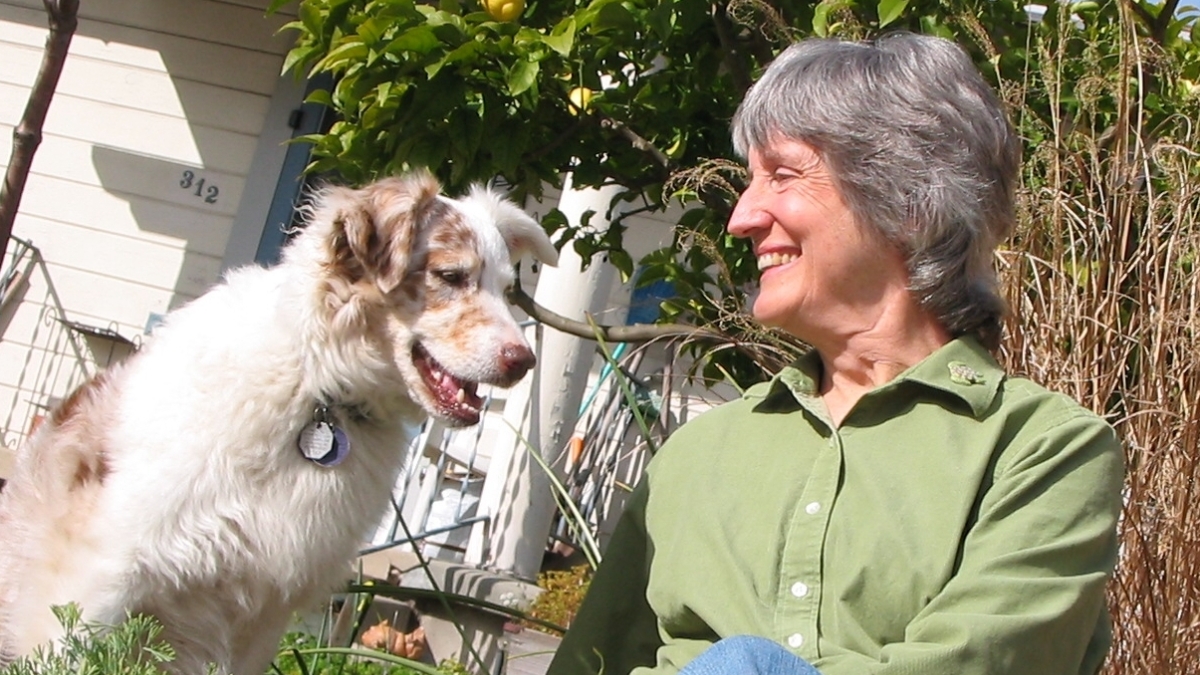Prominent humanities scholar to give free lecture at ASU March 5

Donna Haraway, a cultural theorist and commentator who brought the term “cyborg” into popular usage as a metaphor that captures an abstract view of human nature, will present the 2013 Annual Distinguished Lecture for the Institute for Humanities Research at 5:30 p.m., March 5 in the Carson Ballroom of Old Main at Arizona State University.
The lecture, “Multispecies Cosmopolitics: Staying with the Trouble,” is free and open to the public, though tickets are required and may be reserved online.
A distinguished professor emerita of the History of Consciousness Program at the University of California, Santa Cruz, Haraway has contributed greatly to feminist narratives of the 20th century and also has written extensively about the role of companion species such as dogs.
Her talk at ASU will call upon her audience to rethink the relationship of humans with other species, and to work, play and think in terms of “multispecies cosmopolitics,” a new approach to healing the planet. After centuries of genocides, environmental destruction and its unevenly distributed suffering, and rampant killing of humans and other species, Haraway suggests that humans rethink the future.
Haraway entered the forefront of feminist literature with her 1985 essay, “A Cyborg Manifesto: Science, Technology and Socialist-Feminism in the Late Twentieth Century,” a critique of capitalism and of the ways in which women are often viewed in ways that reduce them to bodies. She uses the metaphor of cyborg identity to expose ways that things considered natural, like bodies, are actually constructed by our ideas about them.
In her 2003 book, “The Companion Species Manifesto: Dogs, People and Significant Otherness,” Haraway writes that dogs and humans are partners in the crime of evolution, bonded in “significant otherness.” Dogs are not just surrogates, she says; they are not here just to think with, but to live with.
Her 2008 book, “When Species Meet,” delves into the interactions humans have with many kinds of animals. At the heart of the book are her experiences in agility training with her dogs Cayenne and Roland, but she also talks of wolves, chickens, cats, baboons, sheep and whales wearing video cameras. She finds that respect, curiosity and knowledge arise from our associations with animals and contradict ideas of human exceptionalism.
Haraway says investigations of multi-species attachment and interaction reveal stunning human ignorance about how humans might inhabit the world with other animals, rather than simply observing or controlling them.
Her lecture will conclude with examples of innovative projects that study both humans and nonhumans engaged in linked effort. She says they are linked in ways that none of us now know how to articulate, but must learn to do so.
A graduate of The Colorado College, Haraway studied philosophies of evolution at the University of Paris on a Fulbright scholarship and earned her doctorate at Yale in biology. She taught science and women’s studies at the University of Hawaii for three years and the history of science at Johns Hopkins University for six years, before joining UC Santa Cruz in 1984.
In 2000 she was awarded the highest honor given by the Society for Social Studies of Science, the J. D. Bernal Prize, for lifetime contributions to the field.
For more information about the lecture or to reserve tickets, go to https://ihr.asu.edu/news-events/events/multispecies-cosmopolitics-staying-trouble.
ASU’s Institute for Humanities Research generates and supports transformative, transdisciplinary, collaborative and socially engaged humanities scholarship that contributes to the analysis and resolution of the world’s many challenges. IHR scholars explore such issues and concepts as sustainability, human origins, immigration and natural disasters and utilize historical, philosophical and creative perspectives to achieve a deeper understanding of their causes, effects and cultural meanings.